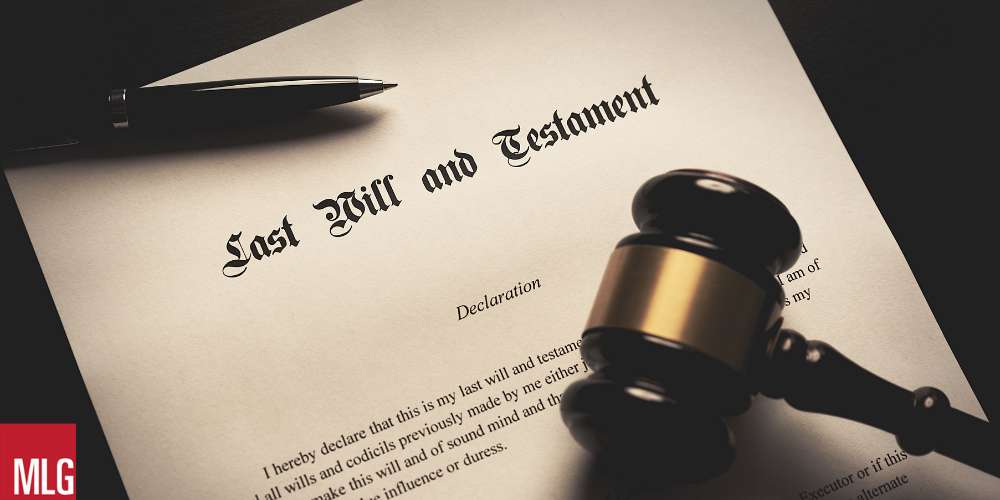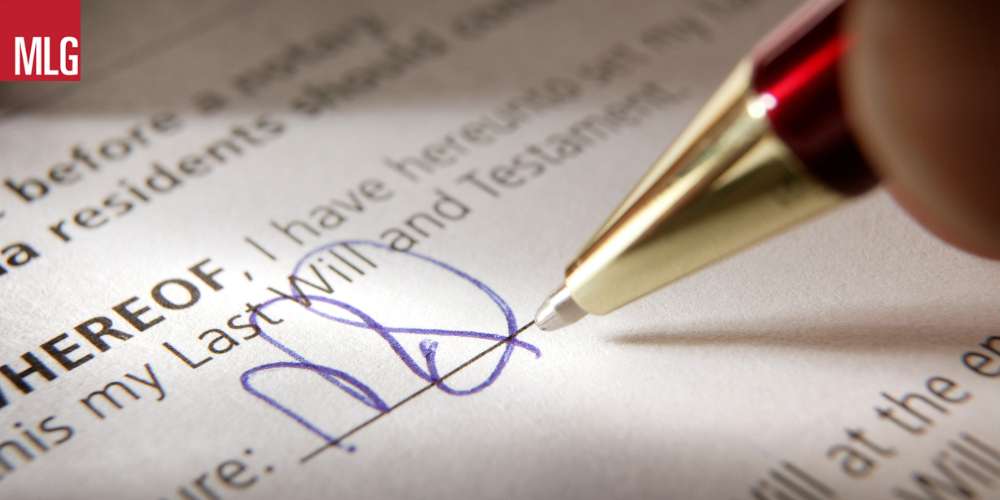Last Will & Testament
PRACTICE AREAS

Manassas Wills Attorney
Experienced Northern Virginia Last Will and Testament Lawyer
Creating a will is a fundamental aspect of estate planning, ensuring that your assets are distributed according to your wishes after your passing as well as protecting your loved ones from potential legal complications and disputes. A well-crafted will allows you to designate beneficiaries, appoint guardians for minor children, and make specific bequests, giving you control over your estate when you are no longer there to make your intentions known. The Manassas Law Group, a leading estate planning law firm in Northern Virginia, has extensive experience assisting clients in creating, updating, and administering wills throughout Prince William County and the surrounding areas. Whether you are drafting a will for the first time or need to update an existing one due to significant life changes, our team is committed to guiding you through the process with professionalism and care, securing your family’s future with comprehensive estate planning solutions. To get in touch with an experienced Manassas estate planning lawyer at MLG, call our law office at (703) 361-8246 or schedule a consultation via our online form today!
What is a Last Will and Testament?
A last will and testament, often simply referred to as a “will,” is a legal document that outlines how a person’s assets and property should be distributed after they’ve passed away. It allows the individual creating the will, known as the testator, to specify who will inherit their belongings, name guardians for minor children, and appoint an executor to carry out their wishes.
Types of Wills
In Virginia, there are several types of wills, each serving different purposes. These different types of wills offer various levels of control and flexibility, allowing individuals to choose the one that best fits their needs and circumstances:
- Simple Wills – The most common type, a simple will outlines the distribution of assets and names an executor to manage the estate. It may also designate guardians for minor children, if any.
- Testamentary Trust Wills – A testamentary trust will creates a trust upon the testator’s death, allowing assets to be managed for beneficiaries over time rather than being distributed immediately.
- Joint Wills – This is a single will created by two individuals, typically spouses, that outlines their wishes for asset distribution. However, joint wills cannot be altered after one party’s death, which can limit flexibility.
- Living Wills – Also known as an advance directive, this document specifies the testator’s preferences for medical treatment and end-of-life care, though it does not address the distribution of assets.
- Holographic Wills – A handwritten will that is valid in Virginia if it meets specific requirements, including being entirely in the testator’s handwriting and signed by them. It must also be proven by two disinterested witnesses in court.

Do I Need a Will?
Most people assume that creating a will – and estate planning, in general – is only beneficial for older and/or wealthier people. In reality, estate planning is incredibly important for individuals of all financial backgrounds. A will plays a critical role in distributing assets after death, whether that be your home, vehicle, money from your savings, or even sentimental property like artwork or family heirlooms.
Without a will, state laws will dictate the distribution of your assets, which may not line up with your wishes. Even for those with modest estates, having a will as part of a comprehensive estate plan is essential to ensure your wishes are honored and to avoid unnecessary complications for your heirs.
Benefits of Having a Will
There are numerous benefits that come with creating a will. Here are some of the most notable:
- Control Over Asset Distribution – A will allows you to specify exactly how your assets will be distributed, ensuring that your property goes to the beneficiaries you choose.
- Appointing Guardians for Minor Children –You can designate guardians for your minor children, ensuring they are cared for by someone you trust in the event of your untimely passing.
- Avoiding Intestate Succession – Without a will, state laws determine how your assets are distributed, which may not align with your preferences. A will prevents this by clearly outlining your intentions.
- Minimizing Family Disputes – A clear and legally binding will reduces the likelihood of disputes among family members over your estate, providing peace of mind for everyone involved.
- Providing for Charitable Causes – When you create a will, you can include specific bequests to charities or causes you care about, leaving a legacy beyond your immediate family.
- Tailoring to Specific Needs – A will can be customized to address unique family dynamics, such as providing for blended families or setting up trusts for special needs dependents.
- Easing the Probate Process – While a will must still go through the Virginia probate process, it simplifies the process by clearly outlining your wishes, making it easier for your local courthouse to administer your estate.
- Peace of Mind – Knowing that your affairs are in order and that your loved ones will be cared for according to your wishes can provide assurance and peace of mind.
Of course, a last will is an essential part of any estate plan, but it may not be enough to cover every base. For instance, a will alone cannot avoid probate court, address instances of incapacitation, or provide ongoing management of your assets after death. For more complex needs, such as minimizing estate taxes, protecting assets from creditors, or managing affairs when you don’t have the mental capacity to do so, other estate planning tools like a trust or durable power of attorney may be necessary.
As such, a good estate plan should be tailored to your specific wishes and life circumstances to provide greater control and protection for both you and your loved ones.

What Should a Will Include?
A will should include several key elements to ensure it effectively communicates your wishes. First and foremost, it should clearly identify you as the testator and include a statement revoking any previous wills. The will should also list all your assets and specify how they are to be distributed among your beneficiaries, which can include family members, friends, and charitable organizations.
You must also appoint an executor, the person responsible for managing and settling your estate according to the terms of your will. If you have minor children, the will should designate a guardian to care for them in the event of your death. Additionally, any specific bequests, such as personal items or family heirlooms, and instructions for handling debts and taxes should all be covered in the document.
Can a Beneficiary Be an Executor of a Will in Virginia?
Yes. In Virginia, a beneficiary can also serve as the executor of a will. In fact, it is quite common for a testator (the person making the will) to appoint a trusted family member or loved one who is also a beneficiary to serve as the executor.
It’s important to remember, however, that the executor has a legal duty to act in the best interests of all beneficiaries and follow the terms of the will, ensuring that the estate is administered fairly and in accordance with Virginia law.
What Happens If You Die Without a Will in Virginia?
Dying without a will in Virginia, known as dying intestate, can have unintended and often significant consequences for your estate and loved ones. In the absence of a will, Virginia’s intestate succession laws will determine how your assets are distributed, which may not align with your personal wishes. In many cases, your estate would be divided among your closest relatives, starting with your spouse and children. However, this process can become complicated, especially in cases of blended families or if you have no immediate relatives.
Additionally, without a will, the court will appoint an administrator to handle your estate, which could lead to delays and increased costs. If you have minor children, the court will also decide who becomes their guardian, which may not reflect your preferences.
Ultimately, dying without a will can create uncertainty and stress for your loved ones during an already difficult time, which further highlights the importance of having a clear and legally binding will in place.

Can I Write My Own Will in Virginia?
Yes, you can write your own will in Virginia, but it’s important to understand the legal requirements to ensure that it is valid. A will written by yourself, known as a “holographic will,” must be entirely in your handwriting and signed by you. It must also be proven in court by two disinterested witnesses who can verify that the will is in your handwriting and was intended to serve as your will.
However, while it is legally possible to write your own will, doing so without legal guidance can lead to mistakes or omissions that might render the will invalid or cause confusion during probate. For these reasons, it’s often advisable to seek the help of an experienced attorney to ensure your will is comprehensive, meets all legal requirements, and fully reflects your wishes.
Does a Will Have to Be Notarized in Virginia?
Unlike in many other states, a will does not have to be notarized in Virginia to be considered legally valid, although having your will notarized can still be beneficial. If you and your witnesses sign a “self-proving affidavit” in front of a notary, it simplifies the probate process because the court can accept the will as authentic without requiring the witnesses to testify. This extra step of notarization can help ensure that your will is executed smoothly and without delays.

How To Make a Will in Virginia
Making a will in Virginia involves several key steps to ensure it is legally valid and reflects your true wishes. Here is a brief overview of the steps involved:
- First, you should start by listing all your assets and deciding how you want them to be distributed among your beneficiaries.
- You should then choose an executor, the person responsible for carrying out the terms of your will.
- If you have minor children, it’s important to designate a guardian for them in your will.
- Once these decisions are made, you can draft the will, clearly outlining your instructions. To be considered legally valid in Virginia, the will must be in writing and signed by you, the testator.
- Additionally, it must be signed by at least two witnesses who are present at the same time and witness you signing the will. While not required, you can also have your will notarized, which helps simplify the probate process by making the will “self-proving.”
- After the will is completed, it’s a good idea to store it in a safe place and inform your executor of its location.
- Finally, remember to review and update your will periodically, especially after major life events such as marriage, divorce, or the birth of a child, to ensure it continues to reflect your current wishes.
Although hiring a lawyer to create a will is not legally required, it is still highly recommended to seek legal advice from an experienced estate planning law firm to ensure your will complies with Virginia law. Working with an attorney can also help address any specific concerns you may have and help you avoid common pitfalls that may lead to your will not being valid.
With legal guidance from an experienced attorney like those at Manassas Law Group, you can feel confident that your will accurately reflects your intentions and will be executed smoothly when the time comes.
How a Prince William County Wills Lawyer at MLG Can Help
At Manassas Law Group, our experienced Prince William County estate planning lawyers are committed to helping Virginia residents prepare and manage essential documents related to their wills. From the initial consultation and beyond, we provide personalized advice for individuals, families, and businesses to ensure their financial interests are protected and their wishes are respected.
Aside from drafting your will and ensuring its validity, our lawyers can assist in making key decisions, such as appointing guardians for minor children and selecting a trustworthy executor to take on the responsibility of carrying out your wishes. We can also offer valuable support in updating your will as life circumstances evolve.
By entrusting your will creation and other estate planning matters to our Manassas law office, you are ensuring the value of your estate is fully protected and your family’s future is secured.

Looking to Create a Will? Call the Experienced Northern Virginia Estate Planning Attorneys at Manassas Law Group Today
Don’t wait until it’s too late – now is the time to address any legal issue surrounding your estate and secure your family’s future by creating or updating your estate plan. Our experienced lawyers at Manassas Law Group are dedicated to helping clients like you create and execute comprehensive estate plans. From trusts, wills, powers of attorney, and various other related practice areas, we’re here to help make sure that your estate is fully protected.
Whether you’re just starting your estate plan or need to make updates, the Manassas attorneys at our Northern VA law firm are here to address your needs and provide valuable advice and guidance. To discuss your legal matters with a member of our skilled team, call (703) 361-8246 or reach out online to schedule a consultation today.














